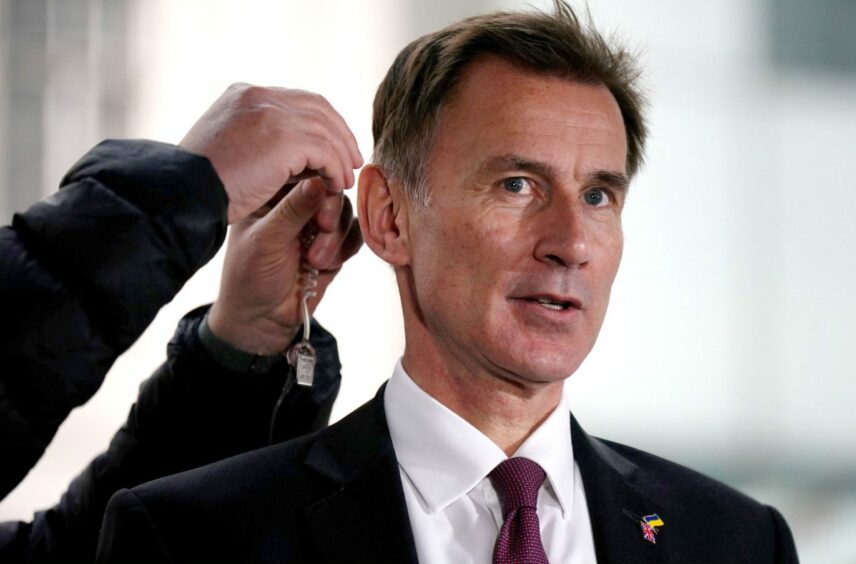
Tory MPs have told Chancellor Jeremy Hunt that the windfall tax on oil and gas companies needs to be watered down to avoid an “existential threat” to the North Sea.
The Telegraph reports that a group of MPs of his own party have told Jeremy Hunt that the energy profits levy (EPL) is making investment “unviable” and even going so far as to suggest it risks an industry collapse.
That’s despite the levy having a 91% investment allowance, to reduce tax paid the more that is invested in new oil and gas projects.
Trade body Offshore Energies UK (OEUK) and companies including the North Sea’s largest producer, Harbour Energy (LON: HBR), have warned the North Sea windfall tax risks diverting investment to overseas regions.
The EPL in the recent Autumn Budget was increased by 10% to 35%, taking the headline rate of tax on the industry at 75%.
It is also being extended from its original sunset clause of 2025 to March 2028, but there are no plans to cut the tax even if energy prices drop.
This risks “crippling” companies if their profits fall, MPs said, as oil prices today are at their lowest since 2021 due to Covid protest unrest in China.
‘No plans’ for price back-stop
The Telegraph cited a Treasury source as having “no plans” to introduce such a back-stop, adding that they don’t expect gas prices to return to pre-Covid levels by March 2028.
Sir John Redwood MP told the newspaper that the tax in its current form is “excessive” and “will damage industry”.
Craig Mackinlay MP, chair of the Net Zero Scrutiny Group, said it is “too blunt and instrument”.
He added: ““We want more domestically derived energy. You do not get more domestically derived energy by taxing it more.”
Bob Seely MP said: “If we get this wrong and North Sea production collapses, a series of very bad things happen. For sure, we need to get tax from the industry, but we need to do so without destroying it.”
It comes as BRINDEX, the association of independent exploration companies, said having no floor-price for the levy risks “jobs and our nation’s energy security”.
The lack of floor price is something that Harbour Energy pointed out as a particular concern in the wake of the levy’s announcement.
There is, however, a 91% investment allowance on new oil and gas projects.
The Treasury said: “The Energy Profits Levy strikes a balance between funding cost of living support while encouraging investment in order to bolster the UK’s energy security and is expected to raise just over £40 billion in total over the next 6 years.
“We want to encourage reinvestment of the sector’s profits to support the economy, jobs, and our energy security, which is why the more investment a firm makes into the UK, the less tax they will pay.”
Recommended for you

